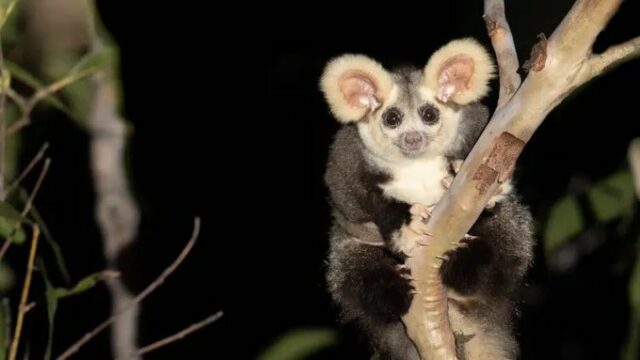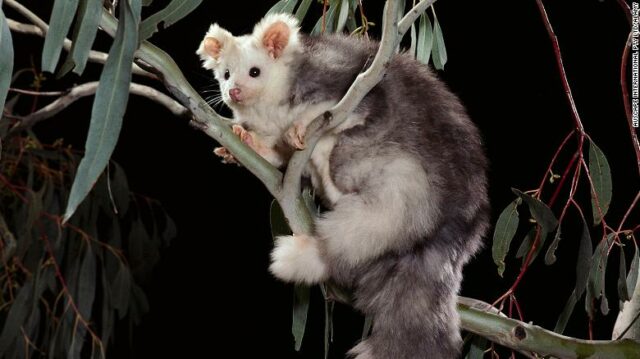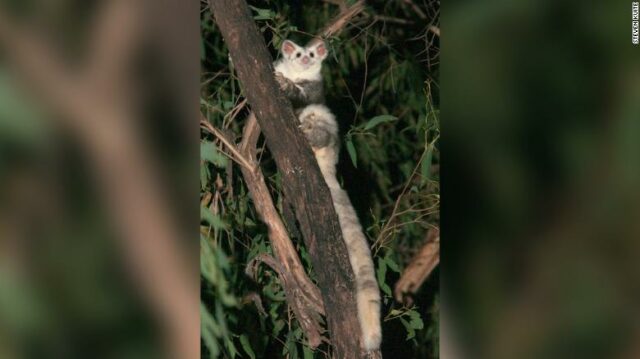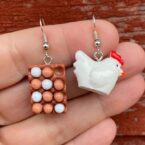Two new species of greater glider, a cat-size marsupial that lives in the forests of Australia, have been discovered Down Under after scientists ran DNA tests on new tissue samples of the animals. A new study published in Nature’s public access Scientific Reports journal details the findings.
“Australia’s biodiversity just got a lot richer,” said Professor Andrew Krockenberger of James Cook University, who was part of the research team. “It’s not every day that new mammals are confirmed, let alone two new mammals.”
Scientists have long suspected the glider might be several species, though there was never sufficient proof, he added in a news release from the university. There were hints such as differences in their size, color and physiology, which had been chalked up to a subspecies rather than an entirely different group.
“It’s really exciting to find this biodiversity under our noses,” study researcher Kara Youngentob told The West Australian in an interview.
“The division of the greater glider into multiple species reduces the previous widespread distribution of the original species, further increasing conservation concern for that animal and highlighting the lack of information about the other greater glider species,” she continued.
As CNET reports, the nocturnal greater glider typically sleeps inside hollow trees at nighttime and roams the forest at night searching for plants to eat. True to its name, the animal is able to glide an impressive distance of up to 328 feet (100 meters) in the air.
“There has been speculation for a while that there was more than one species of greater glider but now we have proof from the DNA. It changes the whole way we think about them,” study researcher Denise McGregor told The Guardian.
The discovery of the two new greater glider species also sparked interest from animal lovers on social media. “And just like that, the world became a lot better,” one wrote.


















So grateful for people like you and love the marsupials
A Professor should know a marsupial is NOT a mammal. That is why they are called marsupials.
A marsupial is a mammal that raises its newborn offspring inside an external pouch at the front or underside of their bodies. In contrast, a placental is a mammal that completes embryo development inside the mother, nourished by an organ called the placenta.
Marsupials are any members of the mammalian infraclass Marsupialia
Marsupials are any members of the mammalian infraclass Marsupialia. All extant marsupials are endemic to Australasia and the Americas. A distinctive characteristic common to most of these species is that the young are carried in a pouch. Well-known marsupials include kangaroos, wallabies, koalas, opossums, wombats, Tasmanian devils, and the extinct thylacine. Some lesser-known marsupials are the dunnarts, potoroos, and the cuscus.
A marsupial is a mammal! From Mirriam Webster: any of a class (Mammalia) of warm-blooded higher vertebrates (such as placentals, marsupials, or monotremes) that nourish their young with milk secreted by mammary glands, have the skin usually more or less covered with hair, and include humans
Marsupials ARE mammals, and you dont need to be a professor to know that. Use google.
A marsupial is a type of mammal. So maybe a Professor does know something.
In truth, marsupials are members of the mammalian infraclass Marsupialia. Thus, marsupials are indeed mammals.
You should know that Metatheria are a subgroup of mammals. You can look it up.
You might want to check your facts before criticizing others…….
A marsupial is a mammal that raises its newborn offspring inside an external pouch at the front or underside of their bodies. In contrast, a placental is a mammal that completes embryo development inside the mother, nourished by an organ called the placenta.
All marsupials are, as are Primates and Rodents and others. However not all mammals are marsupial. Mammals are a broader classification of animal with Marsupials being an intraclass of the mammal Class.
Are you on drugs?? All marsupials ARE mammals. Warm blooded animals with fur that nurse their young. Do you Ned a dictionary?
Marsupials are mammals that are born incompletely developed and then finish in a pouch.
ummm… Marsupial is a subset of mammal. Kinda like raptors are a subset of birds, or snakes are a subset of reptiles. Does it lactate to feed its young (through mammary glands)? Yes? Then it’s a mammal.
Marsupials are any members of the mammalian infraclass Marsupialia. Are you sure you are a mammal?
Marsupials are mammals, but they are not Placental Mammals. One of the first things I learned college (Biology 101).
The definition of mammal is an animal that gives birth to live young (as opposed to laying eggs) and produces milk to feed it. Marsupials fall into that category on both counts. They are mammals.
Marsupials are mammals, and are one of three major subgroups. The other two subgroups are Monotremes and Placentals.
They are mammals. They give birth to their babies, they don’t lay eggs. A simple google search would tell you they are mammals.
The professor does know a marsupial is a mammal, you obviously do not.
Huh? Do they lay eggs? If they don’t then they are mammals 🙂
Except that they are? Educate yourself before making comments.
“Marsupials are any members of the mammalian infraclass Marsupialia”
All marsupials are mammals, but not all mammals are marsupials.
Kingdom: Animalia
Phylum: Chordata
Class: Mammalia
Clade: Metatheria
Infraclass: Marsupialia
…
Did you check this before you posted or did you just assume you knew more than a professor of biology? Marsupials are absolutely mammals. Mammals are distinguished by the possession of hair or fur, the secretion of milk by females for the nourishment of the young, and (typically) the birth of live young (although echinoderms, which lay eggs are also mammals),
Uhm yes, Marsupials are of the class mammalia
They’re called ‘marsupials’ because they have a marsupium (pouch)- very different from a placental mammal. But both groups (along with the egg-laying monotremes) ARE mammals- warm blooded, with hair and milk glands
Marsupials are members of the mammalian infraclass.
The definition of a mammal is one that nurses its young (from the Latin “mamma” meaning breast).
The greater gliders are taxonomically defined as the following:
Kingdom: Animalia
Phylum: Chordata
Class: Mammalia
Infraclass: Marsupialia
Order: Diprontodontia
Family: Pseudocheiridae
Subfamily:Hemibelideinae
Genus: Petauroides
Species: P.volans
Kangaroos, platypus, echidna, possums etc are all mammals
All marsupials are mammals. Class: Mammalia
Marsupials ARE mammals. There are three groups of mammals: monotremes (egg-laying mammals), marsupials (pouches mammals), and placentals (placental mammals).
A marsupial is a type of mammal…
@Plumf Flower- please, please- for the love of God, please tell me that you are kidding?!?
A marsupial is a mammal that carries their young in a pouch….
A mammal is only classified by how it feeds its young. Does it lactate? It’s a mammal. Just like snakes and lizards are both reptiles (along with turtles, crocodilians, and tortoises).
The Three Main Types Of Mammal: Monotremes, Marsupials & Placental Mammals.
A marsupial is a type of mammal that carries babies in a pouch, all mammals give live birth and have hair and or fur, it is not a different species name 🙂 plumf flower
Marsupials and monograms ARE mammals, if more primitive than other sorts. All are warm-bloided, have fur, and lactate to feed their young.
Marsupials are the group of mammals commonly thought of as pouched mammals (like the wallaby and kangaroo at left). They give live birth, but they do not have long gestation times like placental mammals.
The professor in question did not write the headline.
A marsupial is a mammals but with a pouch. Like a kangaroo. How do I know? I’m Australian that is how. Marsupials have hair, give birth to live offspring and feed them milk, they are also warm blooded.
ARE THEY A FISH? A BIRD? AN AMPHIBIAN? AN INVERTEBRATE? A REPTILE? A PLANT?
No? Oh, well then… 😐
Marsupials are still mammals.
Lol at the “a marsupial is not a mammal” idea. I’m really hoping that was a joke or an attempt to troll, not someone who has been miserably failed by their school
I would like to know if their classification has changed from LC or VU to EN or even CR now that they are essentially dividing one species into three.
Marsupials are a subclass of mammals.
sweet after tge devistating fires they had it is a joy to s survvivers especcially new critters
GOD IS GOOD
A marsupial is a mammal. There are marsupial mammals and placental mammals.
Absolutely fantastic and adorable